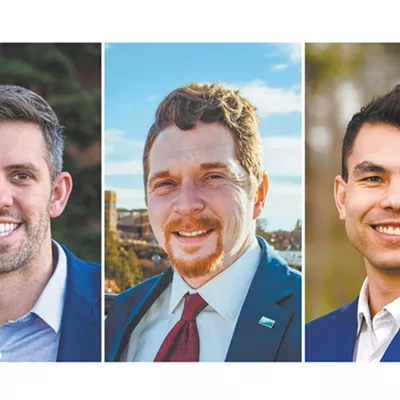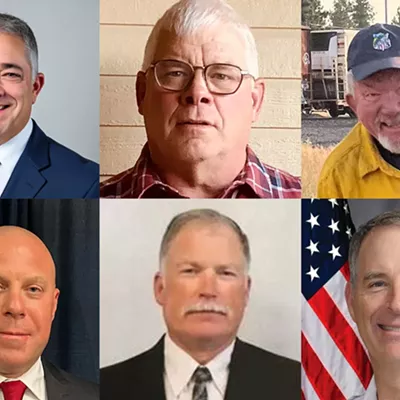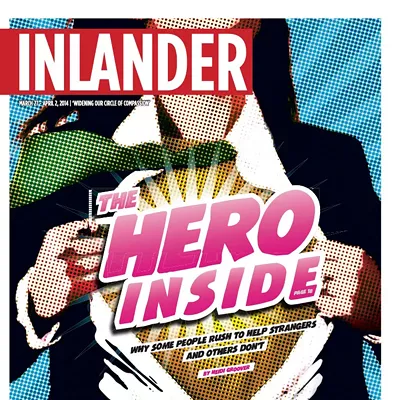
Despite crime statistics that showed it wasn't any more dangerous than in previous years, downtown's reputation took a beating last summer. After public pressure about crime and loitering young adults in downtown, Mayor David Condon formed a task force to address the issue by the time temperatures began to warm this year.
Now, the task force has a list of suggested actions, including more police officers and outreach for youth and young adults on the streets of downtown.
"The whole philosophy is we're not trying to move anyone out of downtown," says Jonathan Mallahan, who is director of the city's community and neighborhood service division and led the task force along with Mark Richard, president of the Downtown Spokane Partnership. "We're trying to make it a place for everyone to enjoy."
To determine its priorities, the group surveyed downtown businesses about their perceptions of downtown and asked homeless youth and adults about their needs. In the results, businesses identified loitering young adults, camping homeless people and "obnoxious behavior" as among the most common and important issues downtown. Among other questions, young people were asked about the reasons for their homelessness. A majority said they were runaways or "pushed out/thrown out." Along with substance abuse and mental health help, a majority of those ages 16 and 17 said they need help finding or getting a job. Nearly 60 percent of 18-to-20-year-olds said they need help accessing housing.
The plan is multifaceted, but the most immediate change will come within the next month, when five new officers will be assigned to the Spokane Police Department's downtown precinct. Officers there — soon to be 14 in total — will focus on "quality of life crimes" like panhandling, sit-and-lie violations and riding bikes and skateboards on sidewalks. A $25,000 public awareness campaign — tagline: "Real change, not spare change" — funded by the city and DSP will encourage the public to give to nonprofits instead of panhandlers.
Meanwhile, the task force hopes to connect more people with services. The city is offering a six-month, $40,000 grant for outreach aimed at youth and young adults. The downtown youth shelter Crosswalk, which will apply for the grant, now runs a street outreach program focused on people younger than 18. More money would allow outreach workers to serve more young adults and provide them with connections to mental health care and training in job skills like interviewing and résumé writing.
The task force also has identified longer-term needs that remain unfunded, including a youth recreation program in downtown, housing for young adults, separate housing for chronically homeless adults and a program that helps people apply for government benefits.
"These are the realities of an urban city and I feel really optimistic about the approach we're taking," Richard says.
While Spokane has a youth shelter and several adult shelters, young adults often slip through the safety net. Service providers and young adults sleeping on the street tell the Inlander that adult shelters can be violent and intimidating places, so young people end up on the street instead.
"This is the hardest group to really explain to the public," says Crosswalk youth programs director Bridget Cannon. "These are kids that need a shot. They just need the chance. On the outside it's real easy to see these 18, 19-year-olds, especially the guys, people see them and go, 'What's his problem? Why doesn't he get a job? I don't see anything wrong with him.' What they don't see is all the trauma, and what they suffered through for the first 18, 19 years of life." ♦

















